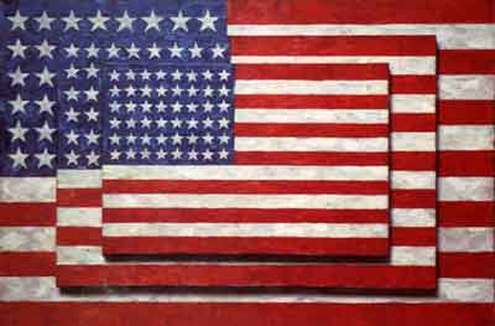Charles Ives made his living selling insurance, and did very well by it. This economic independence allowed him to create some of the most startlingly original and radical music to be heard to date. His Fourth Symphony, among other works, sounds deliberately scored in sections as if several disparate marching bands are colliding on the street. P.T. Barnum sold the masses on anything he cared to, an artist in controlling the circus of Earth. Mark Twain self-published a number of his own works -- he knew his own worth, didn’t wait for slower minds.
It’s not only in the field of entertainment that the American Poet is seen as the oracle of his (or her) people. In the multitudes are those who consider that in their own lives, as laborers, administrators, entrepreneurs, they too are part of this wavelength, that their contract, house built, suit pressed was art, a product of the casual competence of those who put worth into their lives by the magic wand of interest. We know it when we see it -- and when we don’t.
In many national traditions, the dead poets of the past are the venerated -- the artist there is expected to comply with the established forms, and through this, find his own voice, and find it to be that eternal voice. This is a high purpose, worthy of unadulterated respect. But that’s their wavelength, their tradition.
The American sequence is appropriately respectful and yet un-indentured to past forms, past things. We want to see the new thing, even at the risk of its novelty being merely puerile and hucksterish pandering. Throw the coins, let them fall where they may. Howard Roarke, the mythical version of Frank Lloyd Wright, works as a day laborer before he’ll prostitute his architecture to the obsequious genuflections of the cowed before their enslavers. P.T. Barnum had his finger on the pulse of Everyman’s wrist. Frost takes “the road less traveled.” Composer Virgil Thompson comments to the effect that one can tell by the sound of the composer’s music who’s footing the bill.
And what of the poet/artist/composer who foots his own bill? Is he only an amateur, a failure, to be scathingly dissed for stepping to his own drummer? Or is he, in seeking his own personal path through the jungle of socio-economic necessity, embodying the Artist right on down to the ground?
Arguably some of the strangest music to be heard will be found amongst that of the “popular” composers of past times. A century after some work is penned and loudly hailed, we might in our own time look upon it and say, quietly, “what the hell was this guy thinking?”
Perhaps it’s the rugged individualist who reaches beyond the levees of time -- perhaps not. Of course we might wish that to be so, and in American fashion, be right suspicious of that wish.
When we look into an art work to see America, among what emotions, stories, images we behold is the scientific ingenuity of the pioneer, left alone in the wilderness with a pocketknife and wits only. In the lightning-flash of an inspired “better mousetrap”, we see permeation of the artist himself by something greater, something beyond this. But in true American fashion, what kind of God or Universal Force will the man who spits in the eye of Control accept? It’s those who try to divide God and Man into separate camps that we distrust to the death. The pews empty awful fast of American Poets when that brimstone smell starts wafting down. God’s not the problem -- Twain’s God scares the bejeesus out of the so-called believers. The athiests, by denying spirit, deny themselves too, but this is okay. They are not the inspired who change the world upward, but merely, and only in our tacit consent, enbalm us. They are not an audience for our conversation. We need a God for real men and women, not for those afraid of what the neighbors might think. And we never feared for what the neighbors would think before they came. And any man, down deep, knows what this is about, and who they are. And knows that, without the creators, the evil ones have no horse to ride -- nor do they walk well.
It is up to the American artist not to aspire to depravity, not kowtow to trumpeted authorities, not to quaver before threatened calamity. We arethe calamity, and we fully control its azimuth, altitude velocity and impingement. Or we simply do not. We have to ready hand that cowboy temperament that tells us which gunslinger you instinctively try not to rile out of his normal good nature. And which one, in your own strengths, you let be in the nightmare of his waking dream. You see, no real man need bow to any other real man.
Having forged and hammered out the Flaming Sword, as mighty as any of Odin, we cast it aside for something else to do. Something moreintriguing.
It’s not just born Americans, but those who come here to be this thing. Einstein, Tesla, Rand, Stravinsky. We find in the war of infection and assimilation of America by the anti-spiritual forces of communism, psychiatry, One-Worlders, banksters, et al, the very essence of America itself. The virus attacks the source of strength, if it’s a worthy virus. Expect attacks. Expect them. Smile -- this is what we’ve been waiting for. Our best audience includes those who could never be, and by this virtue alone, whose attacks matter little, if at all.
It is the individual in the universe at large, not opposed, but simply in the knowledge that the universe will, if not surrender outright, respect the individual will and give it somewhere to go to, that is the American Wavelength.
Daniel Robinson, aka EtherGun
| 15_american_loser_1.mp3 |


 RSS Feed
RSS Feed
